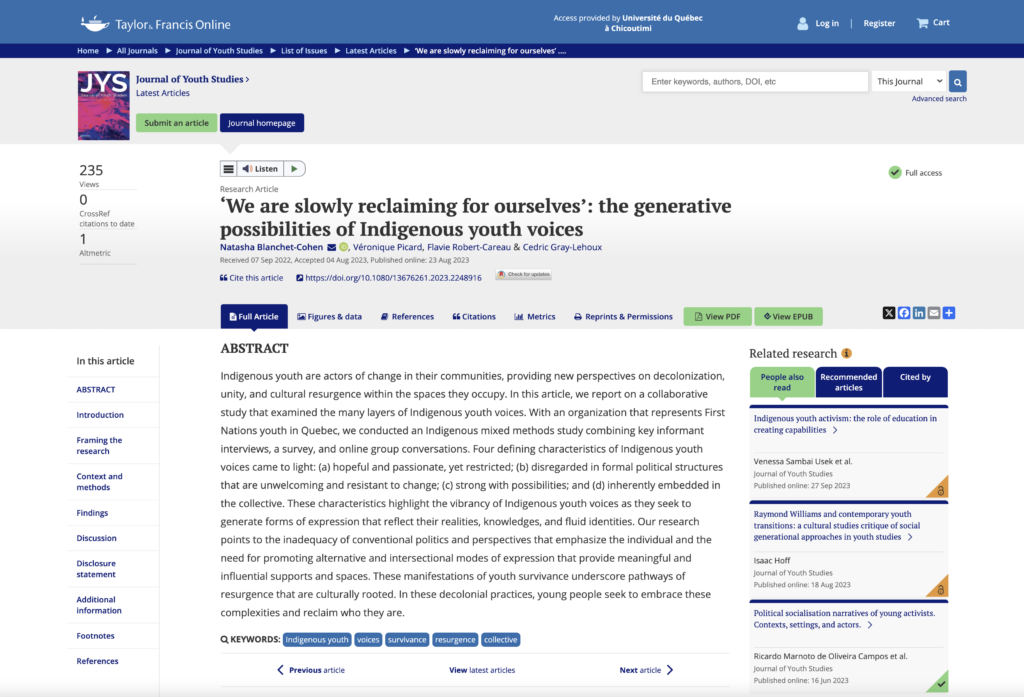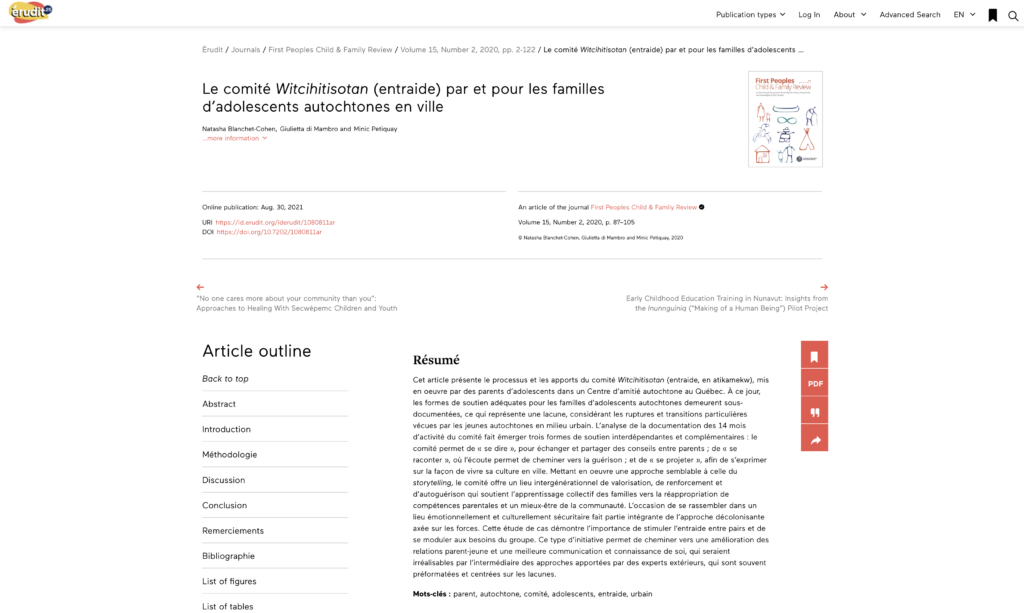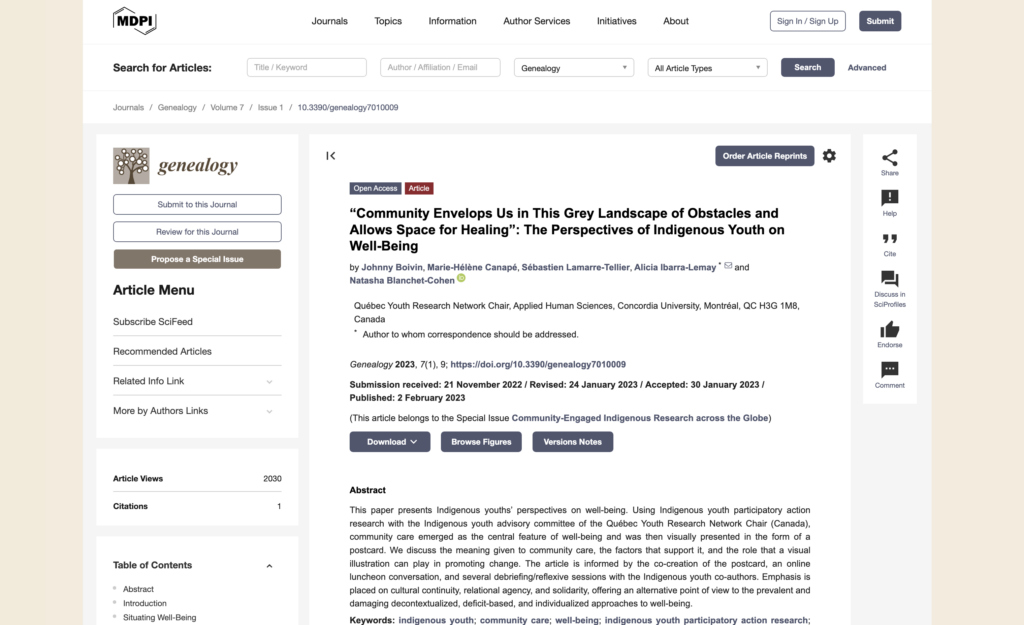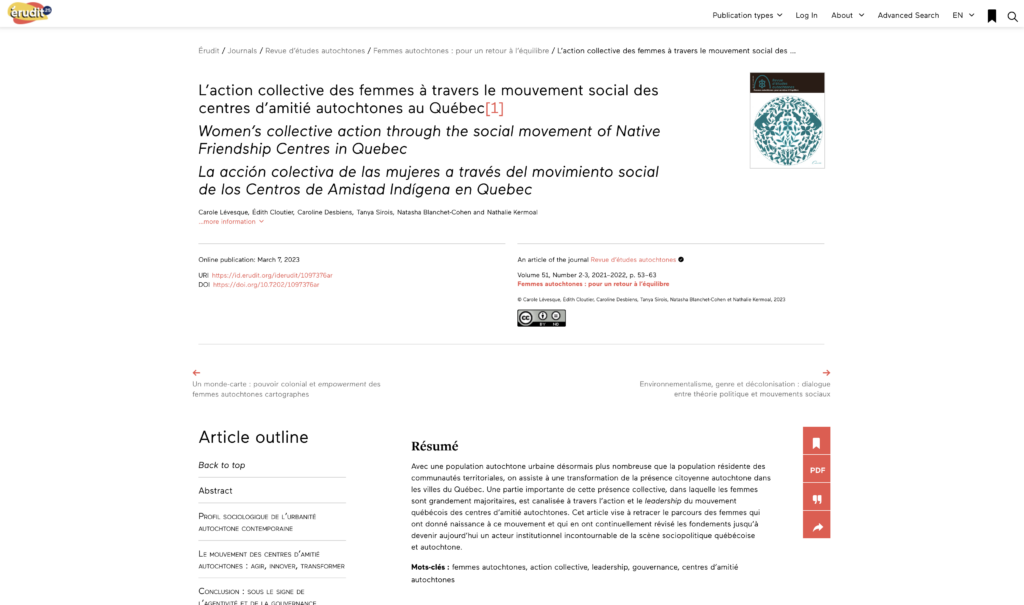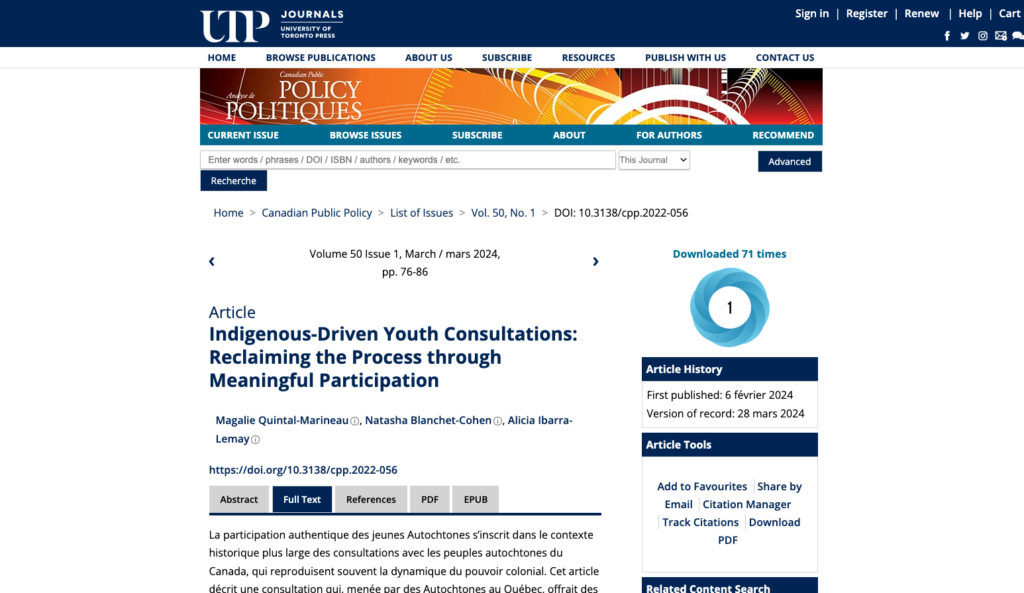Notice bibliographique
Harbec, M.J., Barnett T.A. et Pagani L. (2019). Prospective associations between television in the preschool bedroom and later bio-psycho-social risks. Pediatric Research, 85(7), 967-973.
Résumé
BACKGROUND
North American child media guidelines suggest screen-free zones without offering clear evidence and alternative harm-reduction strategies. Our hypothesis is that having a bedroom television during the preschool years will be prospectively associated with mental and physical health risks in adolescence.
METHODS
Participants are from a prospective-longitudinal birth cohort of 907 girls and 952 boys from the Quebec Longitudinal Study of Child Development. Child outcomes at ages 12 and 13, measured by multiple sources, were linearly regressed on having a bedroom television at age 4.
RESULTS
Bedroom television at age 4 predicted a higher body mass index at age 12 (standardized B = 0.10, p < 0.001), more unhealthy eating habits at age 13 (B = 0.10, p < 0.001), higher levels of emotional distress (B = 0.12, p < 0.001), depressive symptoms (B = 0.08, p < 0.001), victimization (B = 0.07, p < 0.001), physical aggression (B = 0.09, p < 0.001), and lowers levels of sociability (B = −0.09, p < 0.001) at age 12, above and beyond pre-existing individual and family factors.
CONCLUSION
The bedroom as a screen-based preschool zone does not bode well for long-term cardio-metabolic wellness, mental health, and social relationships.
Hyperlien
https://doi.org/10.1038/s41390-018-0265-8Publication du membre
Tracie BarnettAppartenance aux volets













